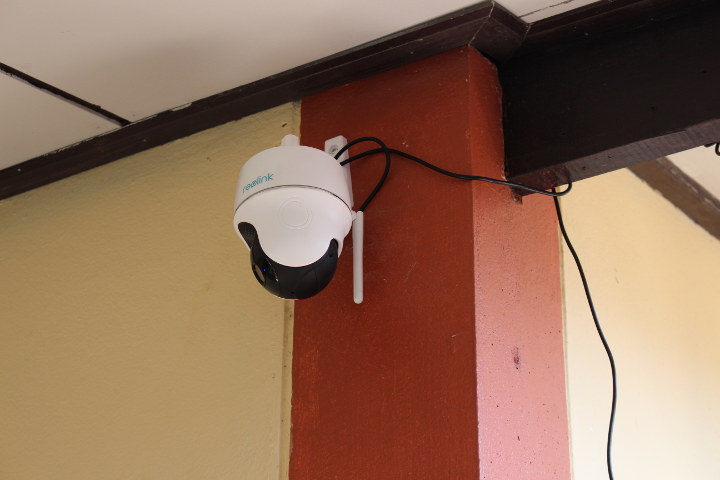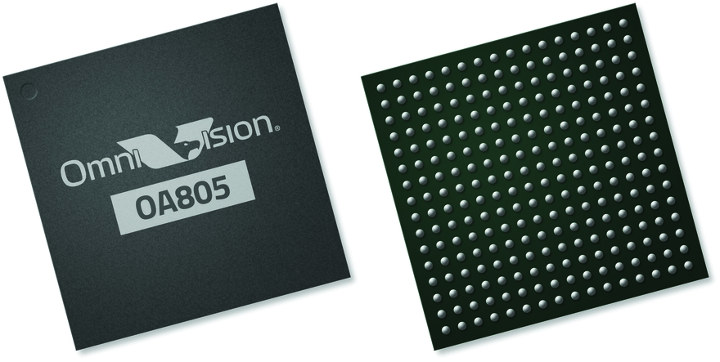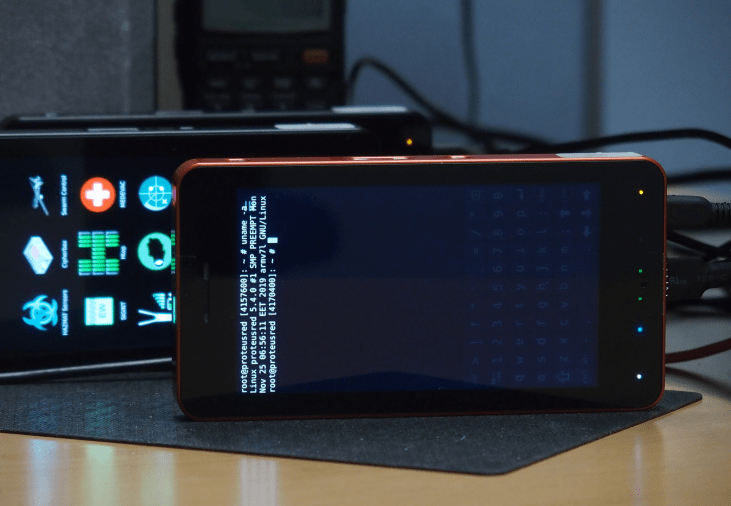Events such as the Embedded Linux Conference and Embedded Systems Conference take place in the US and Europe every year. There are plenty of talks and it’s certainly good for networking, but you need to travel to the event and the entrance fee to have access to all session costs several hundred dollars if you book early, and over one thousand dollars if you register close to the date of the event. Most ELC/ELCE videos usually end up on The Linux Foundation YouTube channel, but the Beningo Embedded Group and Embedded Related website decided to organize a similar conference happening online and simply called the “Embedded Online Conference“. The conference offers topics about embedded systems, DSP, machine learning and FPGA and will take place on May 20. There are currently 17 talks, but they are still calling for talks so more sessions may be added before the actual event. You’ll […]
Reolink Argus PT Review – A Solar powered Pan-Tilt Security Camera
Last year, I reviewed Reolink Argus Eco solar powered security camera, and I’m still using it to date. It’s working fairly well, although sometimes motion detection will not be triggered, or triggered too slowly so it’s not impossible to miss important footage. The PIR function can be tweaked so maybe it’s just a question of finding the right settings for a given location. Nevertheless, the company has now launched a new model called Reolinkg Argus PT that is very similar to the Argus Ego but with PT (Pan, Tilt) function, and I received a sample for review. Since both models are so similar, I recommend reading Argus Eco review first, as I’ll focus on the differences. Reolink Argus PT Unboxing I received two packages like las time: the camera itself, and Reolink solar panel. The camera comes with a WiFi antenna, a wall-mounting set, a USB cable, and some documentation. […]
OmniVision OA805 4K Video Camera SoC Supports 100 ms Boot Time, 4K HEVC Encoding
OmniVision OA805 Arm Cortex-A5 4K video camera processor is specifically designed for battery operated security and surveillance cameras, including video doorbells, with the ability to encode 4K30p video streams with HEVC/H.265 video codec at very low power consumption. The processor also has a very short boot-up time of just 100ms, meaning it can go from completely powered off to fully functional upon trigger by a motion detection sensor. That short boot time removes the need for standby or sleep mode further lowering the power consumption and allowing the camera to have up to two years of battery life (albeit no mention of battery capacity was made…). OmniVision OA805 specifications: CPU Main CPU – Arm Cortex-A5 processor with NEON, 32KB I-cache, 32KB D-cache Secondary CPU (SPU) – Arm Cortex-A5 processor with NEON, 32KB I-cache, 32KB D-cache Media Processing Unit (MPU) – 32-bit RISC MCU with 8KB I-cache, 8KB D-cache System Memory […]
UL IoT Security Rating System Ranks IoT Devices Security from Bronze to Diamond
Underwriters Labs (UL) is better known for its electrical safety certification programs, but in 2016, the company introduced three UL 2900 IoT security standards that defined requirements of software cybersecurity for network-connectable products. Four years later, you may not have heard many products adhering to UL 2900, and Laurens van Oijen, IoT security solution leader at UL, recognizes that ” the UL 2900 set the bar too high for most consumer electronics/IoT companies” according to a report on CE Pro. So instead the company has launched the UL IoT Security Rating System last May with 5 levels of “security capabilities” ranking IoT devices and products with either Bronze, Silver, Gold, Platinum, or Diamond. Those certifications are aimed to help both manufacturers and developers to improve the security of their solutions, and help consumers make better purchase decisions by knowing the level of security of IoT products by just looking at […]
Some Interesting Talks from FOSDEM 2020 Schedule
We wrote about IoT devroom call for proposals for FOSDEM 2020 a little while ago, and as the free open-source developer meetup is getting closer, FOSDEM 2020 organizers released the schedule. So I’ll look at some of the talks in the relevant devrooms such as the Internet of Things, hardware enablement, Embedded, Mobile and Automotive, as well as RISC-V and others to compose my own little virtual schedule for the 2-day event. Saturday, February 1 10:30 – 10:50 – How lowRISC made its Ibex RISC-V CPU core faster – Using open source tools to improve an open-source core – by Greg Chadwick Ibex implements RISC-V 32-bit I/E MC M-Mode, U-Mode, and PMP. It uses an in-order 2 stage pipe and is best suited for area and power-sensitive rather than high-performance applications. However, there is scope for meaningful performance gains without major impact to power or area. This talk describes work […]
ProteusDevice Secure, Open-Source Linux Handheld Features Ethernet Connectivity
ProteusDevice XXLSEC Ltd., the developer of the Privecall-TX device, has developed a near-identical, slightly bigger ProteusDevice, which runs the Linux 5.4 based PriveOS. The ProteusDevice handheld device (“not a mobile phone”) is said to have very tight security and was developed with secure access in mind. Background and Linux Handheld Market The market is seeing more Linux handheld and phones such as the Purism Librem 5, the PinePhone “Braveheart” both of which are already in mass production. There are also other computing options with the handheld Pocket Popcorn Computer, which is much like the PocketChip, but decidedly improved and faster in general, as well as the Solectrix SX Mobile Device Kit which is more of a business option, for smartphone, opensource development with no cellular connectivity, but Gigabit Ethernet and USB-to-UART ports. Some Features and Mystery Production The ProteusDevice is in good company, and has a solid start, but is […]
The Case for Running Chromium OS on IoT Devices
The concept of Chromium OS for IoT was presented by Linaro Veteran Khasim Syed Mohammed at Linaro Connect 2019, In his presentation, he talked about the possibilities and advantages of using Chromium OS for IoT devices. This approach looks promising since it’s running on a Linux Kernel base, and Chromium OS uses a lightweight graphics stack that relies on Linux DRM APIs. This may help to create an IoT device with a graphics interface, without consuming too many hardware resources. Why Chromium OS From the architecture front, chromium OS has impressive advantages compared to other lightweight Linux operating systems, such as Direct Rendering Manager, support for web-based applications, etc… Graphics Stack In Linux-based operating systems, most of the time the graphics/display stack is handled by the X-Window system (Xserver and clients). This increases the complexity of development, consumes a large number of hardware resources and increases the product development life […]
Firewalla Gold Intel-based Ubuntu Router Enables Multi-Gigabit Cyber Security (Crowdfunding)
We covered Firewalla based on NanoPi NEO board in mid-2018. The device is a tiny firewall, parental control, ad-blocker, and VPN appliance for end-users. Since then they’ve launched Firewalla Blue based on NanoPi NEO2 SBC with Gigabit Ethernet and a faster processor, and now the company has just introduced the even more powerful Intel-based Firewalla Gold. Firewalla Gold specifications: Processor – Unnamed intel 64-bit quad-core processor System Memory – 4GB RAM Storage – 32GB flash Connectivity 4x Gigabit Ethernet ports supporting over 3 Gbps in total, and up to 10 VPN connection at up to 120 Mbps aggregated bandwidth. WiFi 6 module (not sure optional or included) Misc – RTC Power Supply – DC barrel jack They may have designed a custom board this time, as I’m not sure which off-the-shelf SBC they may have used in their new product. The device runs Ubuntu Linux so the users will have […]










